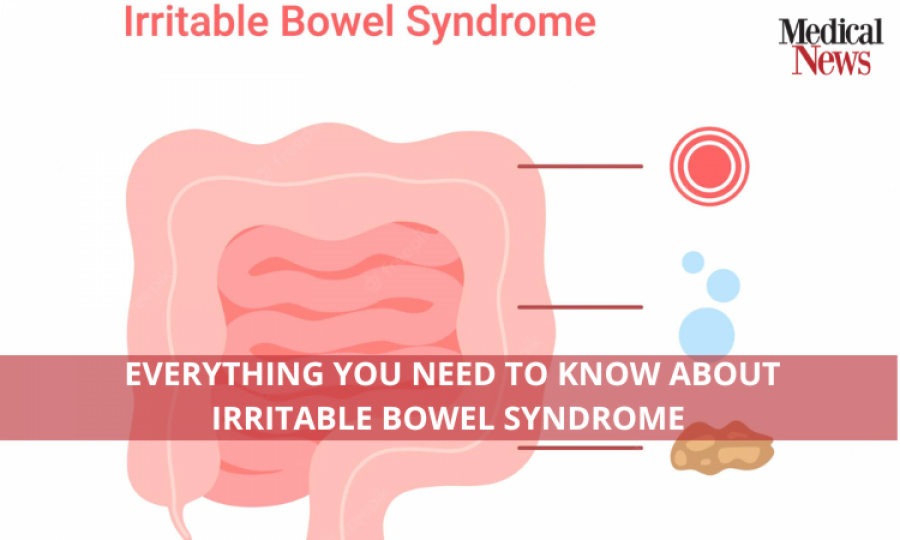Everything you need to know about Irritable Bowel Syndrome

Irritable Bowel Syndrome (IBS) is a common condition concerning the digestive system. It is usually chronic and requires long-term management. Only some people with the condition have severe signs and symptoms which require medication; others can manage it through diet and lifestyle modifications.
Types
IBS is categorised based on changes in bowel movements. The type is essential in determining the course of treatment. These include:
● IBS with constipation (IBS-C): most stools are hard and lumpy.
● IBS with diarrhoea (IBS-D): most stools are loose and watery.
● IBS with mixed bowel movement (IBS-M): both of the above types of stool occurs on the same day
Symptoms
The symptoms may include:
● Stomach pain or cramps
● Bloating
● Diarrhoea
● Constipation
● Flatulence (farting)
● Tiredness
● Nausea
● Backache
● Frequent urination
● Lack of control over bowel movements
● Changed appearance of stool
● Mucus in stool
Causes
While the exact cause is still unknown, these factors seem to play a role:
● Changes in the strength of muscle contractions in the intestine
● Abnormalities of the nervous system
● Early life stress
● Changes in gut microbes
Risk Factors
People with the following characteristics may be more prone to developing the condition:
● Young in age
● Female
● Family history of IBS
● Suffer from anxiety, depression, stress, or other mental health issues
● Food intolerance
● Food poisoning
Triggers
Certain situations trigger symptoms that you should avoid to prevent your symptoms from flaring up. These may include some foods, medications, and emotional stress.
Complications
It is associated with:
● Hemorrhoids
● Poor quality of life
● Mood disorders
Diagnosis
The practitioner will go over the details of your symptoms and may conduct a physical examination of your stomach for lumps or swelling. While there are no specific tests for IBS, some tests may be performed to rule out possible causes. These may include blood tests and stool examinations. Further testing is only required in cases where the doctor is unsure of the problem.
Management
IBS cannot be treated fully but can be managed by:
● Exercising routinely
● Increased fibre intake
● Drinking plenty of water
● Eating smaller meals
● Decreasing consumption of cheese and milk
● Avoiding spicy, processed or fatty foods
● Avoiding alcohol and fizzy drinks
● Avoiding caffeine
● Avoiding smoking
● Adopting a low FODMAP diet
● Prescription medications for mental health issues
● Prescription medications for diarrhoea, constipation or abdominal pain
● Mental health therapies like Cognitive Behavioural Therapy (CBT), Hypnotherapy, and Biofeedback
IBS is a condition that is bound to cause patients severe distress and discomfort. It is therefore advisable to seek help from a medical professional when symptoms develop.
Advertisement
Trending
Popular
Hair loss: Discovery uncovers key stem cells that could reverse ...
-
Broccoli sprout compound may help lower ...
11:31 AM, 25 Feb, 2025 -
Gas Pain vs. Heart Attack: How to tell ...
09:00 PM, 22 Feb, 2025 -
Coconut oil supplement shows promise ...
08:00 PM, 20 Feb, 2025 -
Normal vitamin B12 levels may still ...
05:00 PM, 19 Feb, 2025



